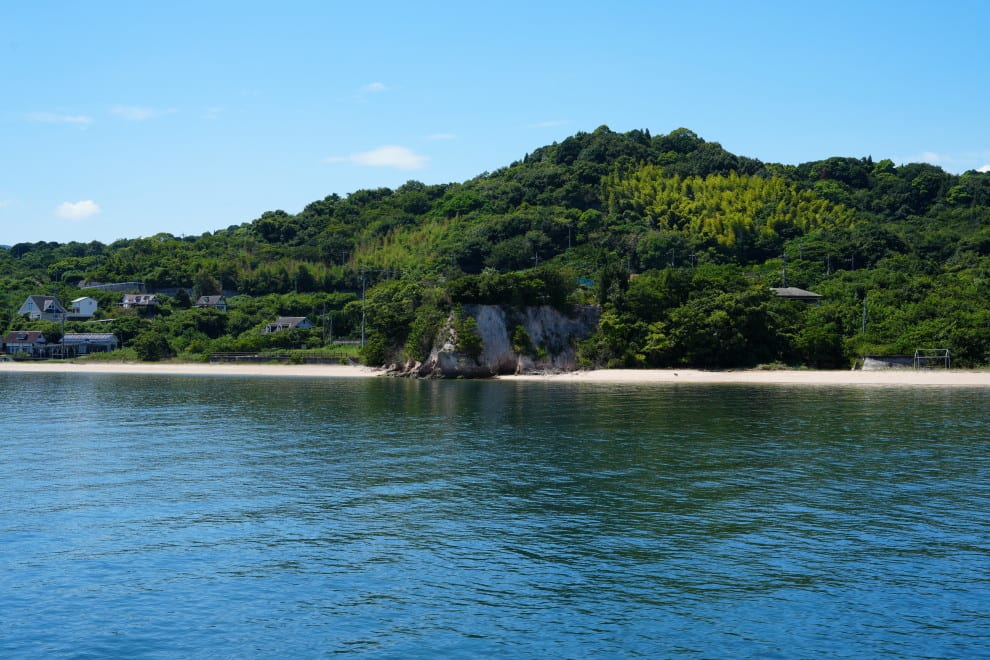For its reform and open-door policy, the country signed a peace and friendship treaty with Japan and wanted Official Development Assistance (ODA) and advanced technology from Japan.
Aug. 29, 2024
The following is from Mr. Sekihei's serial column in today's Sankei Shimbun.
*~* is me.
Japan Missed Two Chances to "Settle the Senkakus"
Chinese vessels have repeatedly intruded into the territorial waters around the Senkaku Islands, part of Japan's inherent territory.
The Japan Coast Guard has done its best to protect the Senkaku Islands, but the government only verbally protests, saying it "regrets" the situation.
The Senkaku Islands are unquestionably Japanese territory under both history and international law.
They have never been China's territory.
*Different from such a fool as Keiichiro Hirano, whose brain is made up of Asahi Shimbun editorials and who has contributed significantly to the degradation of Kyoto University, is Nozomu Ishii, a graduate of Kyoto University's Department of Chinese Language and Literature and now an associate professor at Nagasaki Junshin University's Faculty of Humanities.
His background is not just for show.
In his "Senkaku Refutation Manual: 100 Questions," he verified all Japanese and Chinese historical documents concerning the Senkaku Islands and clarified that they are Japanese territory.
He, too, is a national treasure, a supreme national treasure as defined by Saicho.
If a man like Owari no Sanketsu had been among Japanese politicians, his works would have been translated and published in various languages by now.
Because they have not been able to do so, they continue to be at the mercy of the vile and foolish mass media.
The mass media and the so-called cultural people who sympathize with them have been saying, "Learn from Germany."
Still, they have never once mentioned that Germany's increased presence in the international community after the war was almost entirely due to the political stability resulting from the long-term administration of the CDU.
They had such an incorrigible, masochistic view of history, and therefore, anti-Japanese ideology, that they could not even understand such elementary school-level facts.
This article continues*.
And yet, the Japanese government has been lying about letting sleeping dogs lie and has failed to station even a single civil servant, let alone station the Self-Defense Forces there.
We do not know whether it will be fake fishermen first or the military, but China may one day land personnel on the Senkakus.
In that situation, could Japan's top leader immediately order the Self-Defense Forces to be deployed to defend the country?
Seeing how Japan has failed to show leadership in dealing with the new coronavirus disaster, the Tokyo Olympics, and other issues and has been reacting right and left to the protests of the opposition parties and others, it seems unlikely that it will be able to respond so resolutely.
In the end, he is probably "relying on the U.S. military."
Indeed, the current President Biden has clearly stated that the Senkaku Islands are included in the scope of Article 5 of the Japan-U.S. Security Treaty, which stipulates the obligation of joint defense.
However, this assumes that the Senkaku Islands are under Japan's control.
Japan has effectively controlled the Senkaku Islands, but the current situation is quite precarious.
Will the international community recognize this?
Japan has missed at least two chances to resolve this issue.
The first was in 1972, during the negotiations to normalize diplomatic relations between Japan and China.
At that time, Chinese Prime Minister Zhou Enlai, who met with then-Prime Minister Kakuei Tanaka, said, "I don't want to talk about the Senkaku issue now."
It was China, which was isolated in the international community, that rushed to normalize diplomatic relations.
For Japan, there was no reason to rush into normalization.
In that case, Prime Minister Tanaka should have just walked away and said, "Retract your claim to sovereignty (over the Senkaku Islands). If not, we will end the normalization negotiations."
The second time was in 1978, when China's supreme power, Deng Xiaoping, visited Japan.
Again, China was in trouble.
Because of the reform and opening-up policy that Deng Xiaoping was promoting, China signed a peace and friendship treaty with Japan and wanted official development assistance (ODA) and cutting-edge technology from Japan.
They were so desperate to get it.
However, the Japanese government accepted Deng Xiaoping's idea of shelving the Senkaku Islands issue.
They gave up the chance to settle this issue.
It is no wonder that the Japanese government is said to be taking the territorial issue, which is the foundation of the nation, lightly.
From the perspective of common sense in the international community, this is an unbelievable behavior.
《How will China react to the Senkaku issue in the future? How should Japan prepare for it?》
For China, Taiwan will be the first.
President Xi Jinping is an overconfident dictator who is not interested in listening to the international community's criticisms of him.
I believe there is a possibility that he will take a risky action (invade Taiwan).
Depending on the actions of the U.S. military at that time, they may come to take the Senkaku Islands next.
What will Japan do?
It will be a question of "the resolve of the Japanese people" rather than the government.
Do we want to defend our territory even if we have to fight a war with China or not?
That is the kind of resolve.
Aug. 29, 2024
The following is from Mr. Sekihei's serial column in today's Sankei Shimbun.
*~* is me.
Japan Missed Two Chances to "Settle the Senkakus"
Chinese vessels have repeatedly intruded into the territorial waters around the Senkaku Islands, part of Japan's inherent territory.
The Japan Coast Guard has done its best to protect the Senkaku Islands, but the government only verbally protests, saying it "regrets" the situation.
The Senkaku Islands are unquestionably Japanese territory under both history and international law.
They have never been China's territory.
*Different from such a fool as Keiichiro Hirano, whose brain is made up of Asahi Shimbun editorials and who has contributed significantly to the degradation of Kyoto University, is Nozomu Ishii, a graduate of Kyoto University's Department of Chinese Language and Literature and now an associate professor at Nagasaki Junshin University's Faculty of Humanities.
His background is not just for show.
In his "Senkaku Refutation Manual: 100 Questions," he verified all Japanese and Chinese historical documents concerning the Senkaku Islands and clarified that they are Japanese territory.
He, too, is a national treasure, a supreme national treasure as defined by Saicho.
If a man like Owari no Sanketsu had been among Japanese politicians, his works would have been translated and published in various languages by now.
Because they have not been able to do so, they continue to be at the mercy of the vile and foolish mass media.
The mass media and the so-called cultural people who sympathize with them have been saying, "Learn from Germany."
Still, they have never once mentioned that Germany's increased presence in the international community after the war was almost entirely due to the political stability resulting from the long-term administration of the CDU.
They had such an incorrigible, masochistic view of history, and therefore, anti-Japanese ideology, that they could not even understand such elementary school-level facts.
This article continues*.
And yet, the Japanese government has been lying about letting sleeping dogs lie and has failed to station even a single civil servant, let alone station the Self-Defense Forces there.
We do not know whether it will be fake fishermen first or the military, but China may one day land personnel on the Senkakus.
In that situation, could Japan's top leader immediately order the Self-Defense Forces to be deployed to defend the country?
Seeing how Japan has failed to show leadership in dealing with the new coronavirus disaster, the Tokyo Olympics, and other issues and has been reacting right and left to the protests of the opposition parties and others, it seems unlikely that it will be able to respond so resolutely.
In the end, he is probably "relying on the U.S. military."
Indeed, the current President Biden has clearly stated that the Senkaku Islands are included in the scope of Article 5 of the Japan-U.S. Security Treaty, which stipulates the obligation of joint defense.
However, this assumes that the Senkaku Islands are under Japan's control.
Japan has effectively controlled the Senkaku Islands, but the current situation is quite precarious.
Will the international community recognize this?
Japan has missed at least two chances to resolve this issue.
The first was in 1972, during the negotiations to normalize diplomatic relations between Japan and China.
At that time, Chinese Prime Minister Zhou Enlai, who met with then-Prime Minister Kakuei Tanaka, said, "I don't want to talk about the Senkaku issue now."
It was China, which was isolated in the international community, that rushed to normalize diplomatic relations.
For Japan, there was no reason to rush into normalization.
In that case, Prime Minister Tanaka should have just walked away and said, "Retract your claim to sovereignty (over the Senkaku Islands). If not, we will end the normalization negotiations."
The second time was in 1978, when China's supreme power, Deng Xiaoping, visited Japan.
Again, China was in trouble.
Because of the reform and opening-up policy that Deng Xiaoping was promoting, China signed a peace and friendship treaty with Japan and wanted official development assistance (ODA) and cutting-edge technology from Japan.
They were so desperate to get it.
However, the Japanese government accepted Deng Xiaoping's idea of shelving the Senkaku Islands issue.
They gave up the chance to settle this issue.
It is no wonder that the Japanese government is said to be taking the territorial issue, which is the foundation of the nation, lightly.
From the perspective of common sense in the international community, this is an unbelievable behavior.
《How will China react to the Senkaku issue in the future? How should Japan prepare for it?》
For China, Taiwan will be the first.
President Xi Jinping is an overconfident dictator who is not interested in listening to the international community's criticisms of him.
I believe there is a possibility that he will take a risky action (invade Taiwan).
Depending on the actions of the U.S. military at that time, they may come to take the Senkaku Islands next.
What will Japan do?
It will be a question of "the resolve of the Japanese people" rather than the government.
Do we want to defend our territory even if we have to fight a war with China or not?
That is the kind of resolve.

2024/8/26 in Onomichi, Hiroshima


















